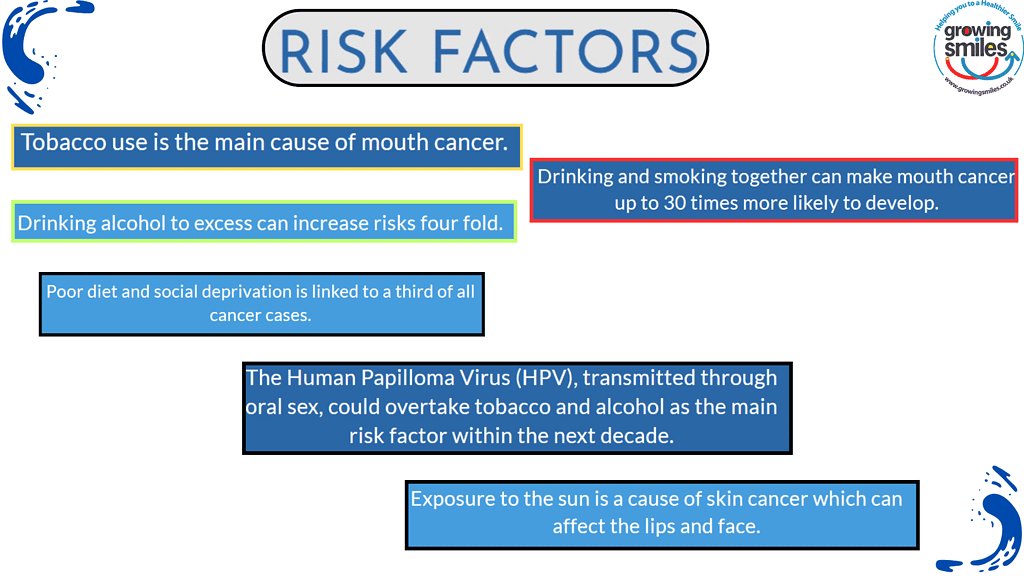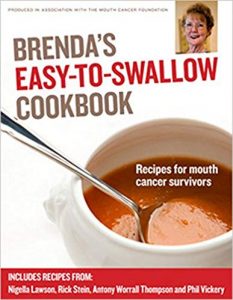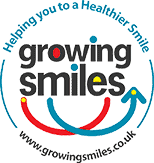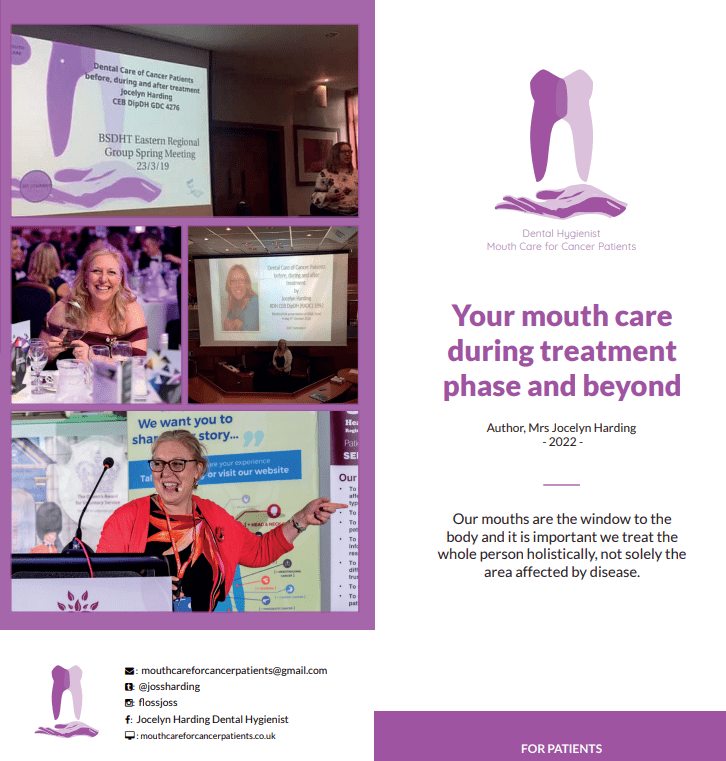Did you know that Mouth Cancer kills one person EVERY THREE HOURS in the UK because of late detection? If in doubt, get checked out by your dentist or doctor.
Mouth cancer and throat cancer (oral and oropharyngeal), describes the location of head and neck cancer, and is the sixth most common cancer reported worldwide, with one of the highest death rates among all cancers.
EARLY DETECTION SAVES LIVES!
You should check your mouth for signs of mouth cancer once a month. follow our social media channels to get a monthly reminder for check up Tuesday when we remind you to check your mouth. A video showing how to self check can be found here. Check out our You Tube playlist with videos about mouth cancer.









Read the Head and Neck Cancer patient handbook from the Mouth Cancer Foundation here.
Mouth cancers include a variety of different types of tumours that can affect the lips, salivary glands, tongue, gums, palate and inside of cheeks as well as beyond, at the back of the tongue, soft palate, tonsils and the throat, pharynx, larynx and oesophagus. The most common specific location for head and neck cancers in the UK is the tongue (2016-2018 canceresearch.org). More information can be found here.
Head and Neck Cancer Statistics

Mouth and throat cancer can grow and spread very quickly. If you think you may have any signs or symptoms, see your dentist or doctor as soon as possible.
Signs and Symptoms
The list of symptoms below can be found on the Mouth Cancer Foundation website.
Things to look out for:
- Ulcers that do not heal within 3 weeks
- Pain or discomfort in the mouth
- Lumps and swellings of no obvious cause in the mouth or neck
- Bleeding from the mouth or throat
- Red or white patches inside the mouth
- Changes in texture- hardness, roughness
- Teeth that become loose
- Difficulty or pain when swallowing, chewing or moving the jaw
- Persistent hoarseness or changes to the voice
- Persistent coughing or the feeling that something is ‘stuck’ in the throat
- Numbness or tingling of the lips or tongue
- Unexplained weight loss
- Dentures that suddenly stop fitting properly
Your dentist will screen for oral cancers as part of your regular oral health assessment (check up). ALL clinical dental team members will check and monitor your oral health, including the soft tissues of your mouth at routine appointments.
Who is at risk?
The most common causes of mouth cancer in the UK are tobacco use and alcohol. HPV largely accounts for the recent increase in mouth cancer among the young and is projected to overtake smoking as the main risk factor within 10 years. Learn more about HPV and mouth cancer here.

Mouth Cancer is more common in men than women, however, the number of women being diagnosed in the UK is increasing. The majority, but not all, of those diagnosed with mouth cancer are over the age of 40 and are also smokers. It is important to note, however, that approximately 25% of mouth cancer cases have NO IDENTIFIABLE RISK FACTORS.
How do I reduce the risk of developing mouth cancer?
- Do not smoke or use smokeless tobacco (e.g. paan, chewing tobacco, gutkha). For tips on how to stop smoking click here.
- Reduce alcohol consumption. Click here for tips on how to reduce alcohol consumption or here to find out how to recognise if you are drinking too much alcohol.
- Increase intake of non-starchy fruit and vegetables
- Get vaccinated against HPV. In the UK girls and boys of 12-13 years are routinely vaccinated against HPV as part of the NHS vaccination programme. The first HPV vaccine is usually offered in school year 8, with the second dose offered 6 to 24 months after the first.
- Check your mouth, once a month – every month! Click here for the Bite Back at Mouth Cancer, do it yourself check – it could save your life.
Useful links
For more information visit the Mouth Cancer Foundation or Cancer Research UK website.
The NHS website is always a good source of evidence-based information. Their information can be found here. Head and neck cancers and many other conditions can impact your ability to swallow. This can impact your health further if you are not getting enough nutrients. Dieticians and speech and language therapists can help. You may find this recipe book helpful.

Food and Cancer. A NO-NONSENSE, EVIDENCE-BASED GUIDE can be downloaded free from here. Trekstock, young adult cancer support has produced a guide to everything you might be asking about how what you put into your body affects it during cancer treatment and beyond.

